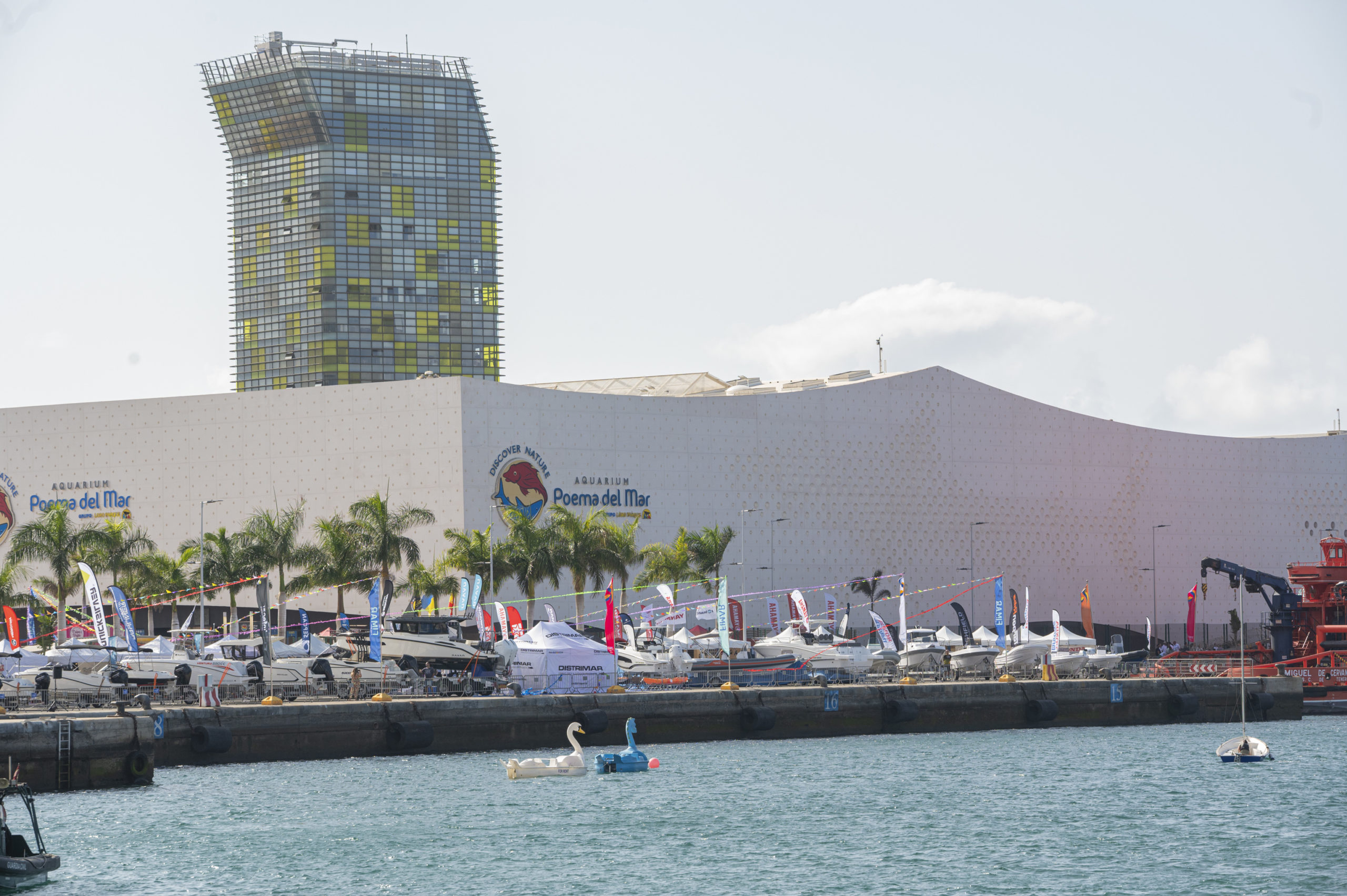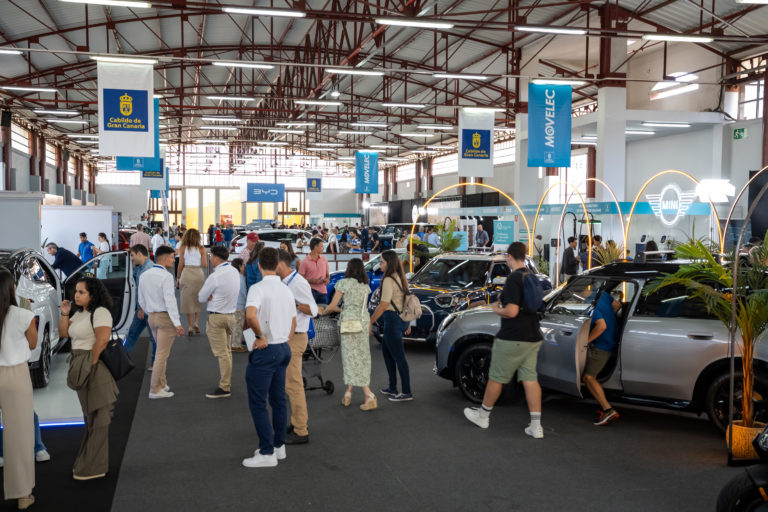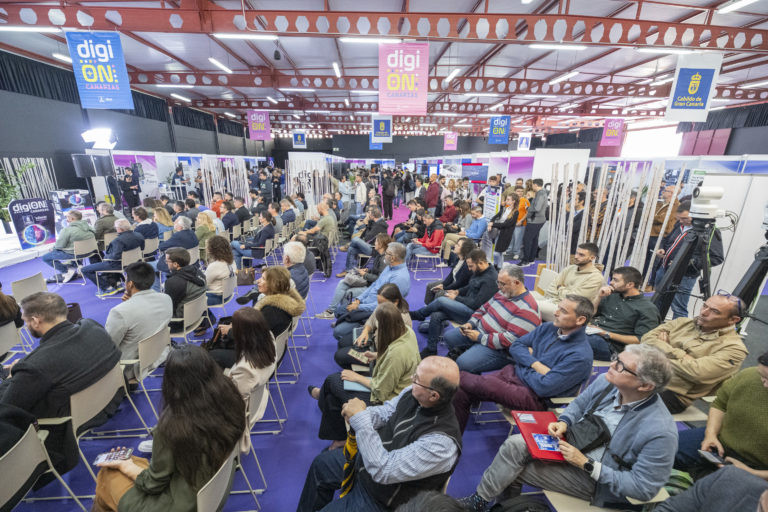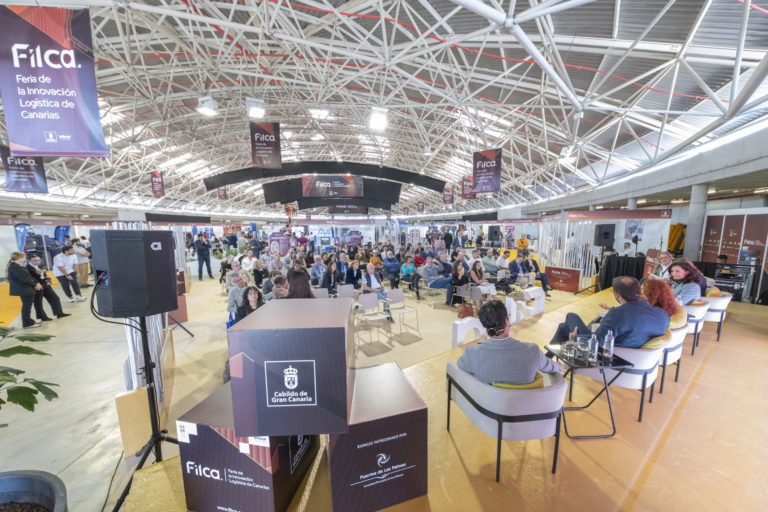- The International Sea Fair celebrates World Oceans Day with strong public engagement and a shared commitment to the blue economy and ocean culture
- More than 14.000 visitors attended the fair from Friday through Sunday
The International Sea Fair, FIMAR 2025, concluded this Sunday with a day full of emotion, symbolism, knowledge, and a collective commitment to the oceans. Coinciding with World Oceans Day, the final day of the fair became a tribute to marine life and to all those working for ocean conservation, whether through science, leisure, or ocean culture.
From early in the morning, Sanapú Dock once again became a hub of activity, welcoming over 14.000 attendees this year. The public turned out in force this June 8th, with the first groups of visitors already waiting for the gates to open. FIMAR has firmly established itself as the leading event for the blue economy in Las Palmas de Gran Canaria, on the island of Gran Canaria, and throughout the Canaries.
More than 50 companies from the nautical and marine-maritime sectors and around 80 exhibition stands formed the core of the event, which also saw a steady stream of local attendees and cruise passengers from the Mein Schiff 6—a TUI Cruises ship docked at Santa Catalina Pier with over 2,500 passengers on board. All enjoyed the rich programming of FIMAR’s final day in a pleasant atmosphere.
Educational talks and World Oceans Day
The International Sea Fair also coincided with World Oceans Day on Sunday, June 8th—an occasion that aligns perfectly with FIMAR’s educational mission focused on the oceanic scientific knowledge base. This global observance not only encourages reflection on the challenges facing our oceans but also reinforces collective commitment to their conservation through innovation, education, and responsible action.
Over fifteen educational talks took place at FIMAR, drawing in curious visitors and experts alike with a program focused on ocean health and future challenges. On Sunday morning, researchers from Ecoaqua and the University of Las Palmas de Gran Canaria (ULPGC) delivered insightful presentations on ciguatera, an emerging foodborne illness associated with fish contaminated by ciguatoxin, emphasising the need for effective monitoring systems to protect consumers.
Other key topics included reducing emissions in maritime transport and the advancements made by IUSA, the so-called “CSI of the sea,” whose research helps solve complex environmental impact cases. Also notable was an innovative session on the use of microalgae-based fuels, which are now in small-scale development as a sustainable alternative for maritime transport.
The knowledge-sharing program featured experts from ULPGC, RedPROMAR, and the Canarian Association of Maritime Collectors. It was supported by stands from ULPGC, the Island Council’s Department of Primary Sector, Food Sovereignty and Water Security, the Oceanic Platform of the Canary Islands (PLOCAN), and Poema del Mar. These exhibits, many of which were aimed at young learners, sparked great interest among children eager to engage with science and marine education.
Highlights of FIMAR 2025
Among FIMAR 2025’s standout features were the innovative proposals by several exhibiting companies. Notably, Sugraher, a 3D printing specialist, showcased cutting-edge maritime applications. Also capturing attention was a pedal-powered single-seat submarine prototype developed by ULPGC Naval Engineering students, designed for a UK obstacle course competition in 2026. The project drew interest both for its creative engineering and the international challenge ahead.
Over at the Elder Museum, visitors also enjoyed a parallel activity throughout the fair: “Navigating by the Stars”, a planetarium talk series blending astronomy and maritime tradition.
Training and career development
FIMAR 2025 also highlighted the blue economy’s career and training potential, with dedicated spaces for vocational and academic pathways in the sector. Key contributions came from the Canary Islands Maritime Cluster, municipal employment and training services, and academic institutions like ULPGC.
The event aimed to boost professional development and job opportunities tied to the ocean economy in the city and the island. This year, it included new collaborations with the Portuguese town of Ericeira, a featured guest at the fair.
Three days of activities, water sports, and fun for all ages
As usual, the nautical zone was a hive of activity. Hundreds of visitors enjoyed water-based experiences, from traditional boat rides in the Port of La Luz and Las Palmas Bay to “first-time” sailing lessons, pedal boats, mini-cruises, and the always-popular Optimist parents’ regatta, held as part of the Alejandro Da Silva Charity Trophy to support leukaemia research. This social cause once again demonstrated FIMAR’s ability to connect sports and community solidarity.
One of the busiest attractions was the SASEMAR tugboat Miguel de Cervantes, where both children and adults explored the vital role of maritime rescue operations.
In the kids’ area, creativity reigned. Children took part in fun recycled craft workshops (like making fish out of paper plates), and enjoyed oversized games that filled the space with laughter and learning.
To wrap up the fair, music took the stage. Singer Carol Magagna, known as Carol Singer, brought rhythm and joy to the event’s finale. Her infectious energy and upbeat set got everyone dancing and left a lasting impression on this year’s edition.
FIMAR 2025: A celebration of the sea and its future
With a perfect mix of science, education, sustainability, sports, and culture, FIMAR 2025 officially closed its doors at 3:00 p.m. on Sunday, reaffirming its role as Canary Islands’ leading maritime event. It not only celebrates the city’s connection to the ocean, but it projects it into the future with awareness and enthusiasm.
A well-rounded offering—featuring hands-on learning for children, a lively kids’ zone, and a strong focus on marine products in the gastronomic area—has cemented FIMAR as one of the biggest highlights of this late spring season, once again backed by widespread public support.
Organisers and Partners
Fimar is promoted by the Island Council of Gran Canaria, the Las Palmas de Gran Canaria City Council, and the Las Palmas Port Authority, and is organized by the City of the Sea Department and INFECAR – Gran Canaria Trade Fair Institution.
Collaborating institutions include the Department of Primary Sector, Food Sovereignty and Water Security of the Island Council, the University of Las Palmas de Gran Canaria (ULPGC), the Canary Islands Maritime Cluster, GESPLAN (RedPROMAR, Educaisla), and the Municipal Institute for Employment and Training (IMEF) of Las Palmas de Gran Canaria.



